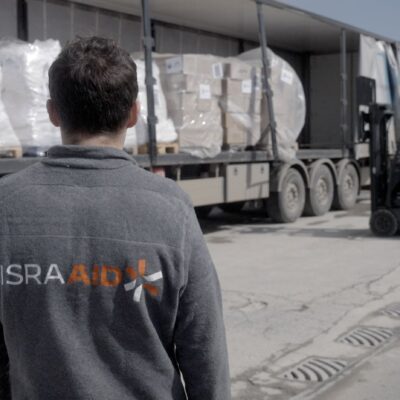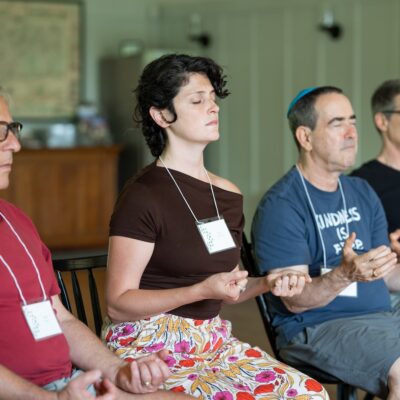Every Little Bit Counts: Microfinancing in the Jewish Tradition
by Talia Cottrell Furleiter
 Maimonides, writing in 12th-century Egypt, could not have imagined the extension of loans beyond the limits of one’s own community and immediate surroundings. Even 25 years ago, if a Jew living in New York wanted to personally help the people living in the poorest reaches of the globe through loans, partnerships, or helping them find jobs, it would have required intense personal and financial commitment and international travel. One who couldn’t make that type of commitment could give money to a larger charitable organization, but he would lose control and knowledge over how the money would be spent.
Maimonides, writing in 12th-century Egypt, could not have imagined the extension of loans beyond the limits of one’s own community and immediate surroundings. Even 25 years ago, if a Jew living in New York wanted to personally help the people living in the poorest reaches of the globe through loans, partnerships, or helping them find jobs, it would have required intense personal and financial commitment and international travel. One who couldn’t make that type of commitment could give money to a larger charitable organization, but he would lose control and knowledge over how the money would be spent.
Today, however, someone can turn on her computer and make a small loan to a clothing manufacturer in Nicaragua, all before her morning coffee. In a globalized world, with advances in technology that have made connections between people across the world more feasible, one could argue that a poor community across the world could be considered to be within one’s primary sphere of obligation, even in terms of proximity. According to this argument, modern microfinance is a logical extension of Jewish charitable values, and an innovative method for fighting global poverty.
 Microfinance is the supply of small-scale loans and other financial services to the poor, and can be provided by larger banks, corporations, NGOs, and now individuals. Websites like Kiva.org allow individuals to browse the profiles of entrepreneurs throughout the world and give small loans that help the entrepreneurs attain financial independence and a better life. These entrepreneurs generally cannot get loans from banks, because the latter generally lend to those who already have collateral.
Microfinance is the supply of small-scale loans and other financial services to the poor, and can be provided by larger banks, corporations, NGOs, and now individuals. Websites like Kiva.org allow individuals to browse the profiles of entrepreneurs throughout the world and give small loans that help the entrepreneurs attain financial independence and a better life. These entrepreneurs generally cannot get loans from banks, because the latter generally lend to those who already have collateral.
There are a number of Jewish lending teams on Kiva, including “Kiva Jews,” which has 204 members and has made $27,150 in loans throughout the world (as of August 3, 2009). “Kiva Jews” was founded by Joel, a web project manager from Lexington, Massachusetts, after he realized that other faiths had lending teams on Kiva but that there was no Jewish group. According to Joel, the group has grown steadily without much active recruitment on his part. Joel indicated that he felt Kiva was one of the ways in which he connected to the Jewish value of tzedakah. “The people who I lend to are small farmers and tradespeople, like my great-great-grandparents were before they came to America… If Kiva were around then, my ancestors would be the ones applying for loans,” he said.
Uri L’Tzedek, an Orthodox social justice organization which, according to its website, is “guided by Torah values and dedicated to combating suffering and oppression,” started a Kiva lending team in November 2008. According to founder and co-director Shmuly Yanklowitz, Uri L’Tzedek created this team because “Jewish social justice mandates that we address the needs of the most vulnerable around the world in more sophisticated, sustainable, and dignified ways.” The team has 60 members who have made $3,325 in loans (as of August 3, 2009).
Like Kiva, the microlending platform LendforPeace.org allows for individual small-scale participation. Under the belief that lack of economic prospects for Palestinians is an impediment to the peace process, LendforPeace.org aims to help the conflict move towards a peaceful solution by giving more economic opportunities to struggling Palestinians. Jewish co-founder Sam Adelsberg insists that the Jewish notion of giving a loan instead of a donation (as per Maimonides) was instilled in him by his family, who started a “Hebrew loan fund” in an ultra- Orthodox neighborhood in Jerusalem. Adelsberg ultimately sees LendforPeace.org as “a way to tie my passion for ‘Maimonidean economic development’ with my burning interest to find innovative solutions to the ongoing conflict.”
 While some Jews have started getting involved in microfinance and connecting microfinance and Judaism, the largest lending team on Kiva is “Atheists, Agnostics, Skeptics, Freethinkers, Secular Humanists, and the Non-Religious,” with over 5,000 members and over $700,000 in loans, and there are many large Christian groups on Kiva as well. Perhaps many Jews are following the literal principle of giving to the poor of their own city before the poor of other cities, or maybe they are participating in microfinance but not necessarily connecting to microfinance in a Jewish way. Given the basis for the value of lending as poverty relief in the Jewish tradition, however, there is a strong potential for an active and explicitly Jewish involvement in microfinance.
While some Jews have started getting involved in microfinance and connecting microfinance and Judaism, the largest lending team on Kiva is “Atheists, Agnostics, Skeptics, Freethinkers, Secular Humanists, and the Non-Religious,” with over 5,000 members and over $700,000 in loans, and there are many large Christian groups on Kiva as well. Perhaps many Jews are following the literal principle of giving to the poor of their own city before the poor of other cities, or maybe they are participating in microfinance but not necessarily connecting to microfinance in a Jewish way. Given the basis for the value of lending as poverty relief in the Jewish tradition, however, there is a strong potential for an active and explicitly Jewish involvement in microfinance.
“There are eight levels of charity, each greater than the next. The greatest level, above which there is no other, is to strengthen the name of another Jew who is faltering by giving him a present or loan, or making a partnership with him, or finding him a job in order to strengthen his hand until he needs no longer beg from people.” (Maimonides, Laws of Gifts to the Poor 10:7)
The Jewish legal tradition has long dealt with the question of how best to distribute charitable resources. Maimonides considers the giving of loans to be the highest form of charitable giving. While Maimonides speaks in a language which prioritizes Jewish recipients, he elsewhere writes that we “sustain the non-Jewish poor along with the Jewish poor because of the ways of peace” (Laws of Gifts to the Poor 7:7). A famous text in the Babylonian Talmud indicates that if one has a choice between loaning to someone in their home city and loaning to someone outside, they should choose the former (Bava Metzia 71a). The same text describes that one should choose lending to the “poor” over lending to the “rich.” Based on this text, Jewish thinkers and legalists have posited vastly different opinions on how to prioritize lending. One potential reading is to prioritize those closest (whether richer or poorer) and then give to those further away. Others, however, such as the Hatam Sofer (1762-1839), argue that you only prioritize the people living in your city if all else is equal, but if the people outside your city are far poorer than those in your city, you should give or lend to them first (Responsa Yoreh Deah, 234).
Talia Cottrell Furleiter lives in New York City and is a student in the graduate program for women in Advanced Talmudic Studies at Yeshiva University. She spent this past summer as a fellow at Uri L’Tzedek.
images: top – Ana Elizabeth Agustin Mejia, Soyapango, El Salvador, Food Production/Sales; middle – Sandra Elizabeth Castro, Sonsonate, El Salvador, General Store; lower – Abduhalim Kholov, Dushanbe, Tajikistan, Cloth and Dressmaking Supplies
This post is from the just-released PresenTense Philanthropy issue; you can also subscribe to PresenTense Magazine and receive this, and future issues, delivered directly to you.

 Add EJP on Google
Add EJP on Google









